How To Repair A Frame With Gold Leaf
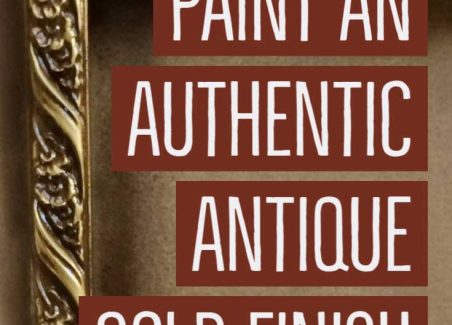
Instructions for creating antiqued finishes abound on the internet- and, trust me, I tried a lot of them in my quest for an authentic antiqued/patinaed end.
Through trial and fault, plus some quondam trade secrets from the coppersmith workshop where I grew up, I developed this method for antiquing frames that creates a metallic former-gilded end. The trick? Using a thin glaze of high-quality acrylic paint rubbed into crevices to create a faux antique finish that softens the metallic gold with a vintage, slightly grungy experience. Here's my technique, start to finish. Share your results in the comments beneath!
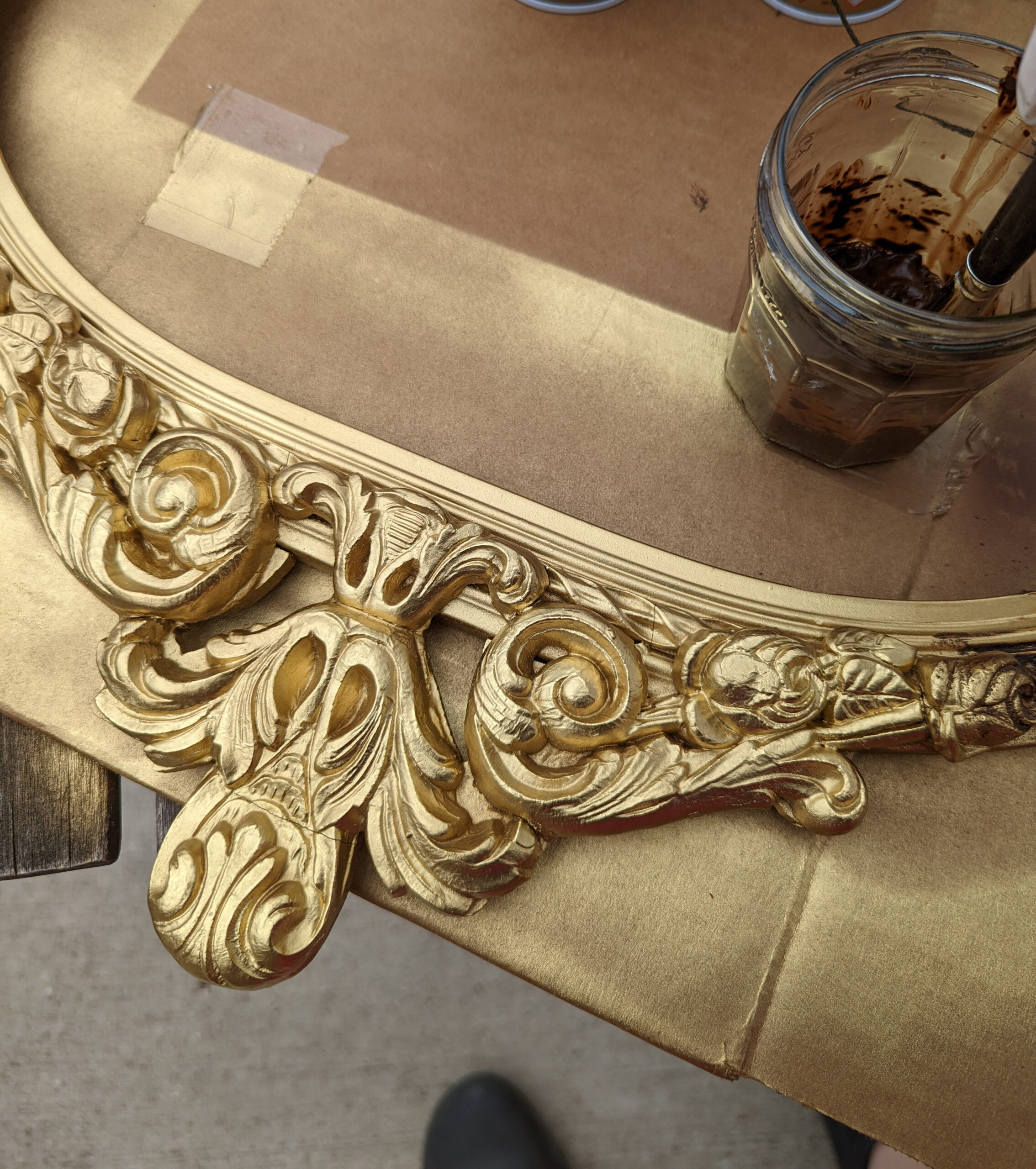
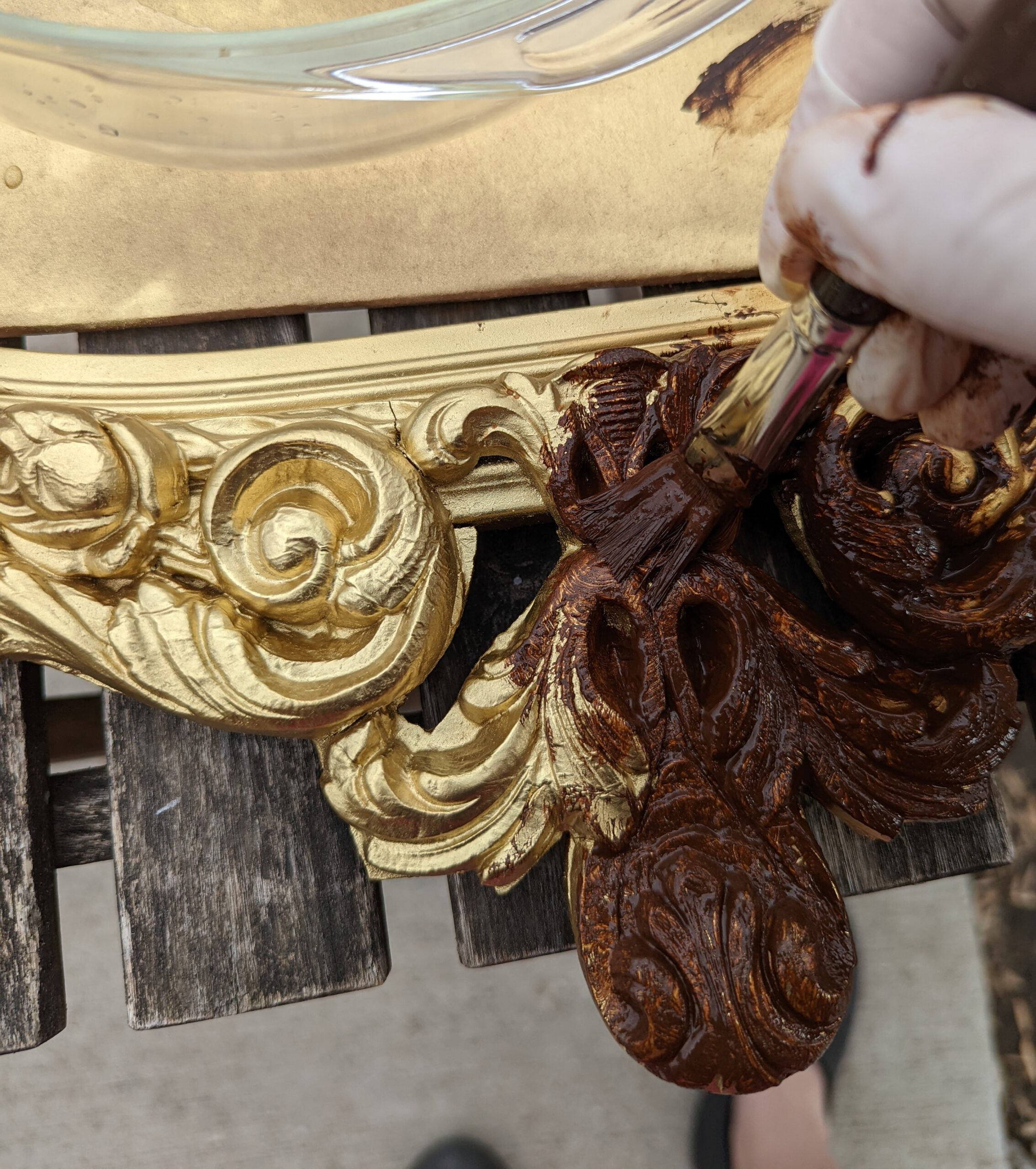
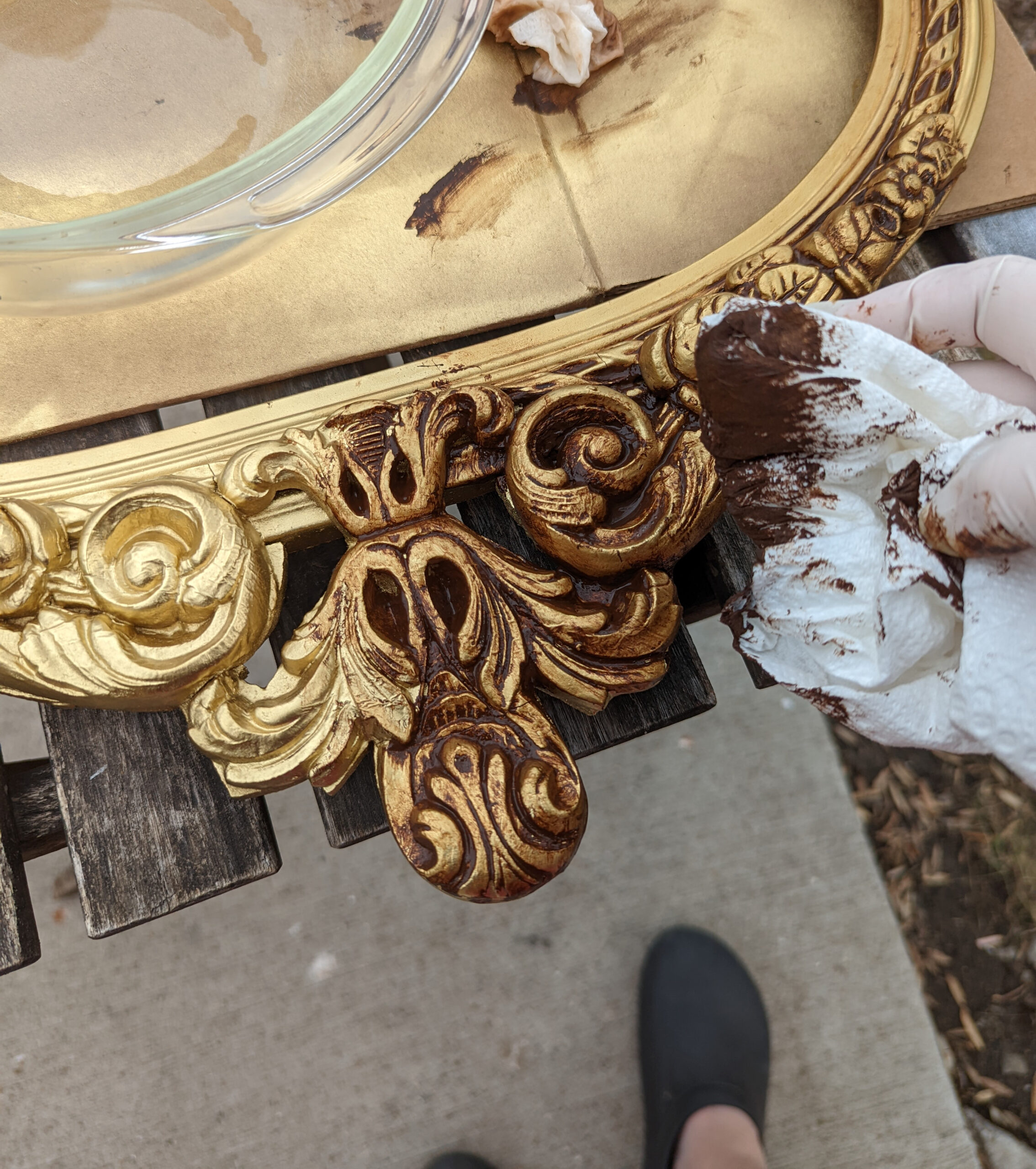
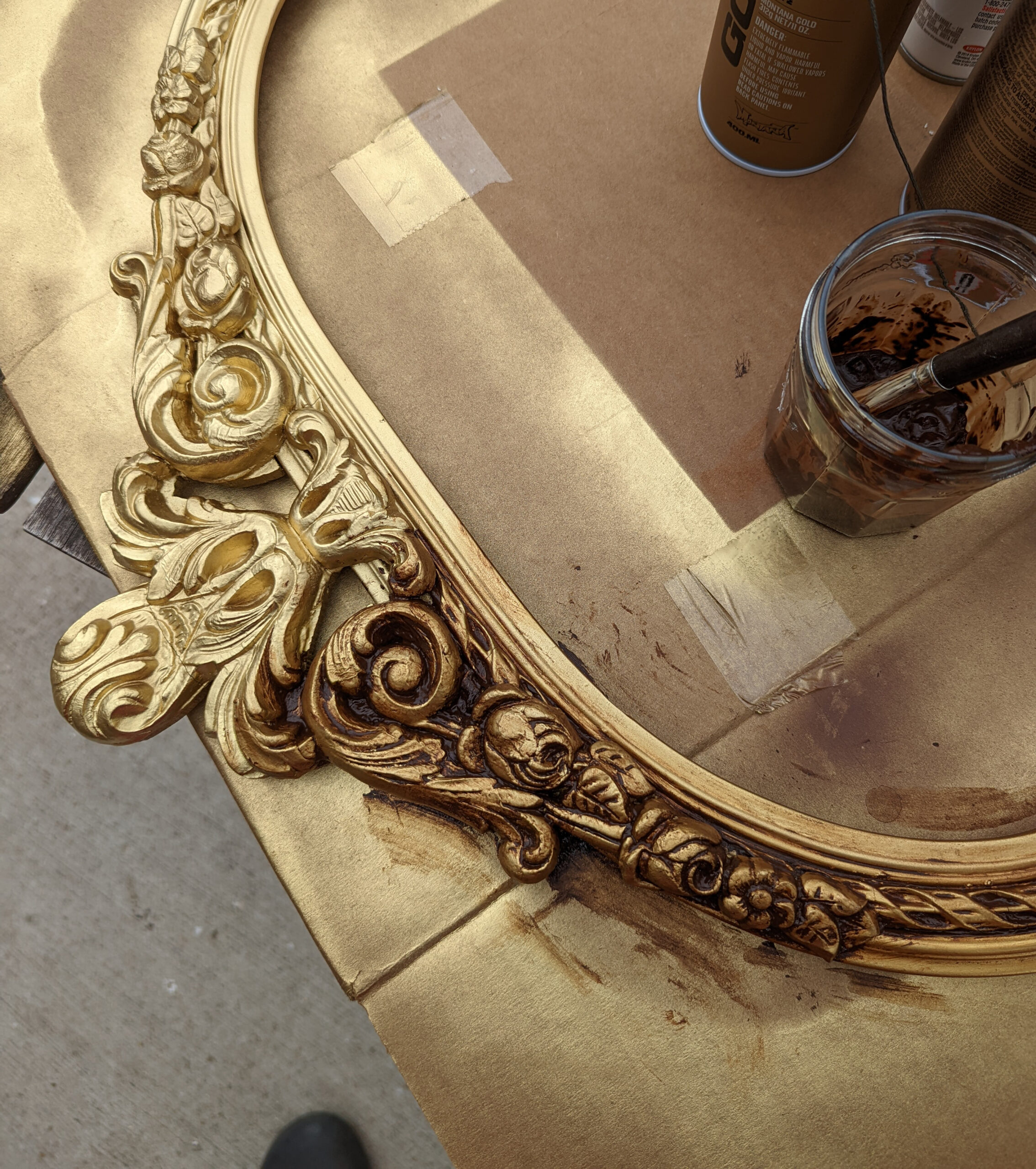
Products linked beneath have been researched and tested on this project. Every bit an amazon acquaintance, nosotros earn from qualifying purchases.
Supplies Neeed for this Tutorial
- Liquitex Professional person Spray Paint – Raw Umber
- Krylon Foil Metallic Gold Spray
- 1 Chip Castor (or other very large, soft-bristled brush
- Paper Towels (lots of them!) rags will work merely require special cleaning*
- A box or trash can where y'all tin toss paint-soaked paper towels.
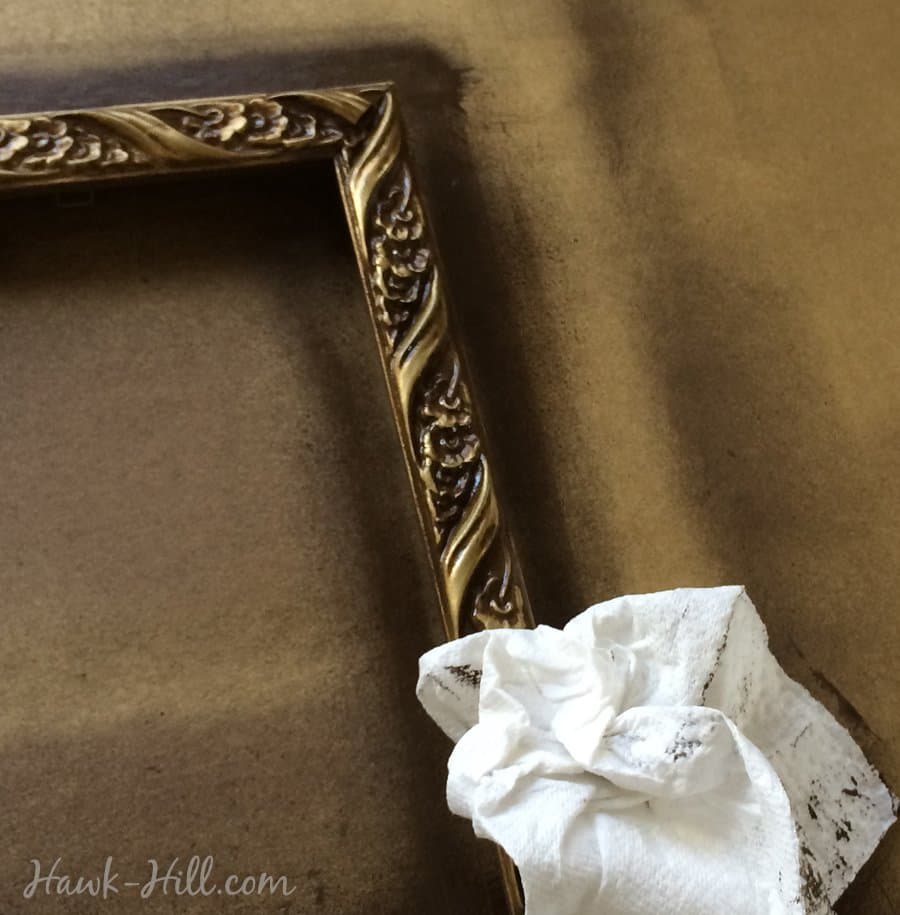
How to Paint an Antique Gold Patina Terminate
Paint Metal Gold Undercoat
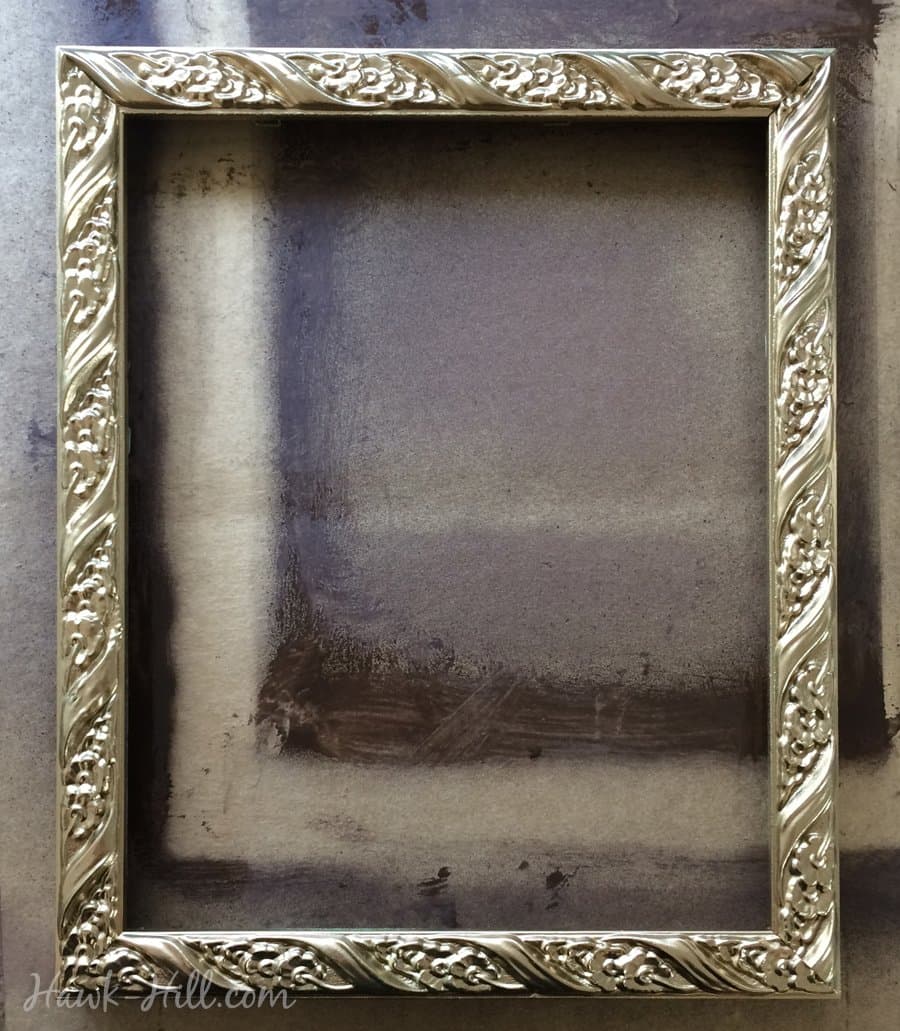
Paint frames with gilded foil spray paint, taking care to cover the tiptop and sides of the frames evenly. Gold "foil" spray is essential to get a rich sheet on the final patina. I similar the foil spray paint because information technology's the best for replicating a real gold luminescence, not just a "gold colour".
Metallic paint overspray can be tough to make clean upwardly- then spray pigment on a protected surface. I normally pigment on my driveway on elevation of cardboard boxes. The cardboard boxes protect permanent surfaces from overspray and lift the frames upwards a chip so the procedure doesn't require constant bending over to achieve all surfaces.
Allow Basecoat to Dry out
Earlier continuing to the next step, the base glaze of metal foil gold paint should be fully dry. In warm air and depression humidity, you should exist able to continue in nigh an hour. Paint will dry slower in libation temperatures and higher humidity.
Prep Towels
This method of creating an antique gilt patina works by applying brown paint liberally so wiping eighty% of the paint abroad- which highlights raised areas and leaves brown paint in crevices. Earlier spraying the top glaze, take towels (more than you expect to need!) handy, plus an piece of cake manner to throw them away without staining anything. It'due south important to be able to work chop-chop- before the top glaze dries- so exist prepared.
Apply Brown Topcoat Paint
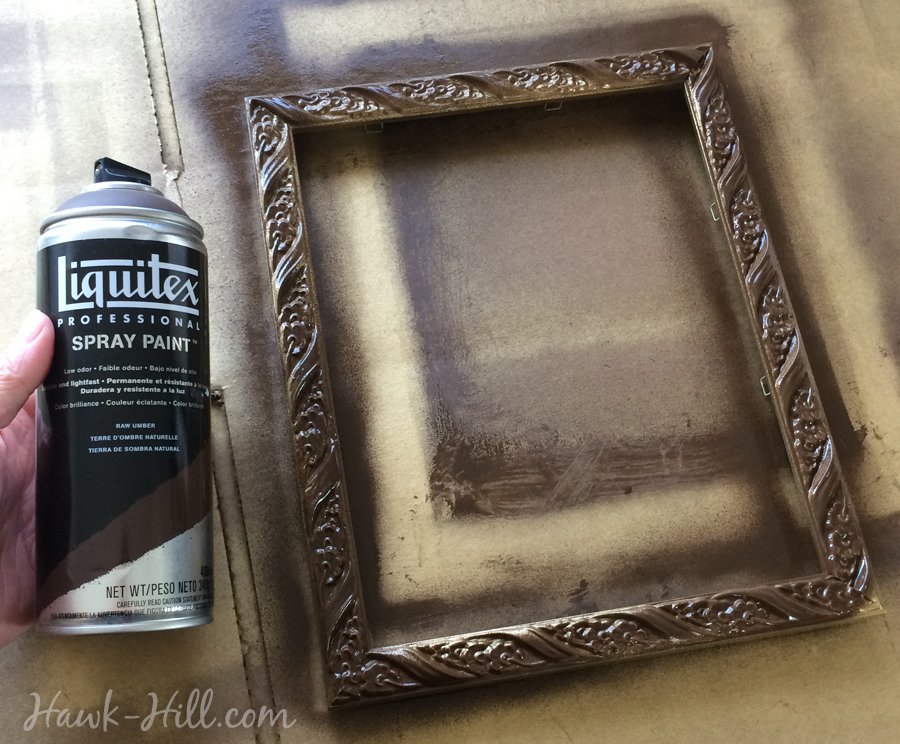
Once the gilded paint is completely dry (wait a minimum of an 60 minutes or 2) Add a thin coat of the Liquitex Professional person Spray Pigment – Raw Umber, as shown.
NOTE: Non just whatever dark-brown pigment will practice. Trust me. I'thou a penny pincher, I've tried the thrifty route already and resorted to this artist's grade paint. It makes a HUGE difference.
Liquitex "raw umber" is the perfect tone of brown for creating the actuality we're going for. The artist-grade pigments in this spray paint make a huge departure. Rather than the typical watery-texture of spraypaint, this stuff goes on in and even, thick, and buttery coat.
Hand Pigment To Get Total Coverage
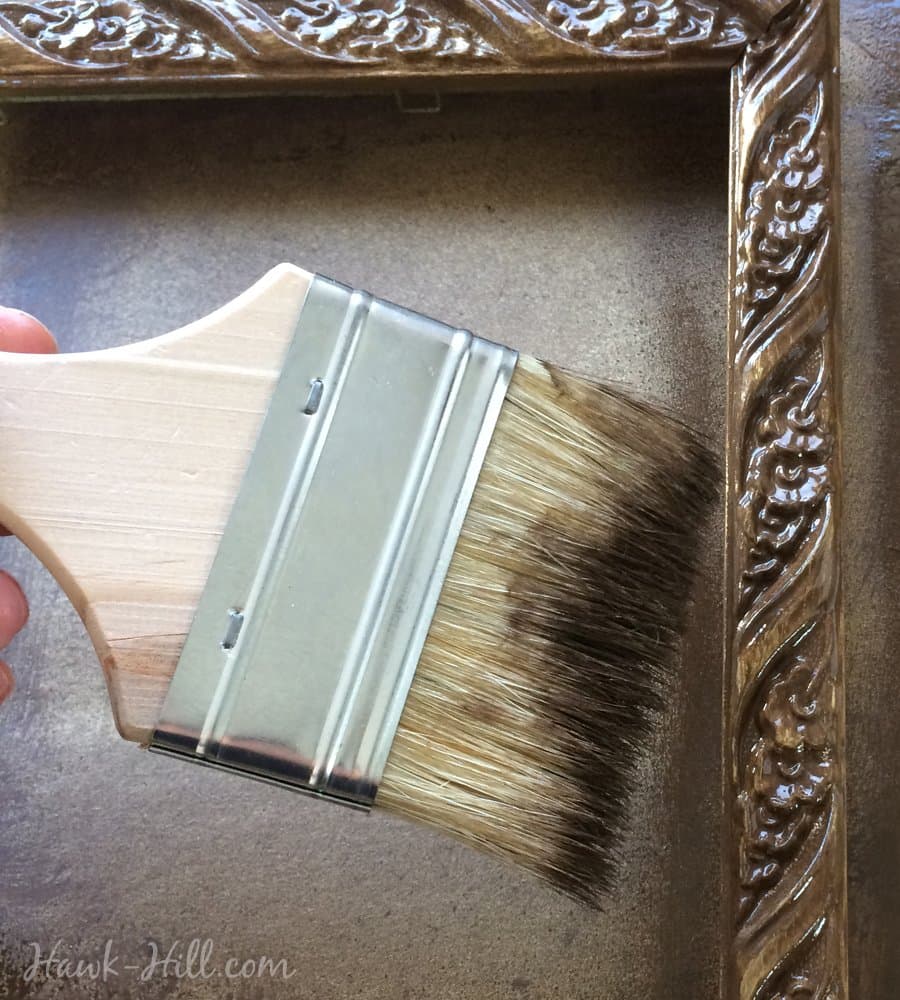
Working speedily, use the castor to work the chocolate-brown paint deeper into crevices of the frame. (At beginning, your brush will removement more than paint that it moves, keep going and add pigment if needed until the paintbrush is saturated and moving excess paint into crevices)
Use Towels to Add together a Rubbed Stop
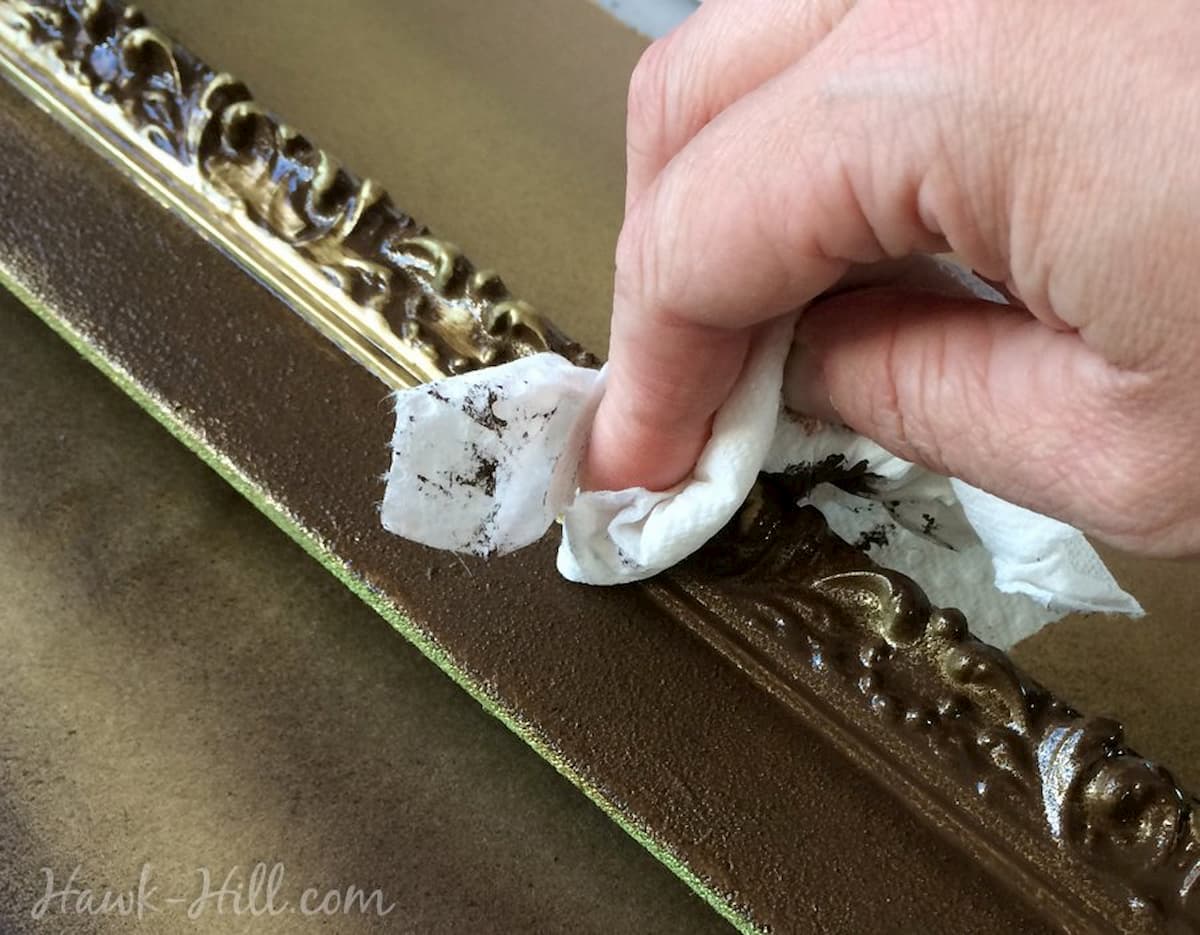
Now that the brown paint is deep into crevices, you'll need to remove paint from the high points of the frame- similar edges and ridges – to create that rubbed patina finish.
Wiping the still-wet brown acrylic paint off with a soft, clean rag or paper towel will remove enough acrylic paint from the points to create this upshot.
Estimated Price: 15 USD
Supply:
- Paint
- See Supply listing
Tools:
- Paintbrushes
To brand your patina less obvious, rub a trivial more aggressively, immigration more of the brown paint from the crevices.
That'due south all it takes! As you tin can see from the shut-up photos, the final effect is a rich, vintage, expensive-looking stop that you can add to dollar store frames and thrift store finds. The more texture and recesses a frame has, the better this technique tends to turn out. Simple, flat frames tin still be made a little more aged and elegant looking with this painting method, just the highly ornate style frames explode with depth and interest with the multiple layers of paint and sorry.
Can I use not-spray paints
Can I paint a Antiquarian Gold Patina without Spraypaint
This project depends on having a highly pasty, merely highly pigmented paint for the top coat. This viscosity allows the brown pigment to seep into cracks and crevices and give the appearance of age. It may exist possible to replicate this without spray pigment, but you'd likely need a product like high period raw umber paint.
Variations:
Creating a "Muddy Antique Gilded" Patina Finish
When I was in college, I experimented with a similar antiquing method to create a grittier version of this antique gold finish. To add grit and the advent of age, you can try the method I used: sprinkling sifted soil on the wet paint after the summit coat is applied. By calculation a dusting of literal grit, and then rubbing it into the cracks and crevices, you may become closer to the antiquarian gold finish yous're looking for.

Using Cloth Rags instead of Paper Towels
I used to think Acrylic paint would stain permanently anything it touched, but hosting Bob Ross Paint-Along Parties taught me that that'southward not the example! The clandestine? Have a large bucket of water handy and immediately submerge acrylic-pigment saturated rags. Equally long as the paint doesn't dry on fabric, it will wash out! Since you'll get a LOT of paint on your rags with this method, be sure and requite your rags a thorough handwash earlier tossing them in a washing machine, especially if your washer is a low-h2o washer or a portable washing machine. A prewash will prevent paint transfer onto your washer, pipes, or clothing.
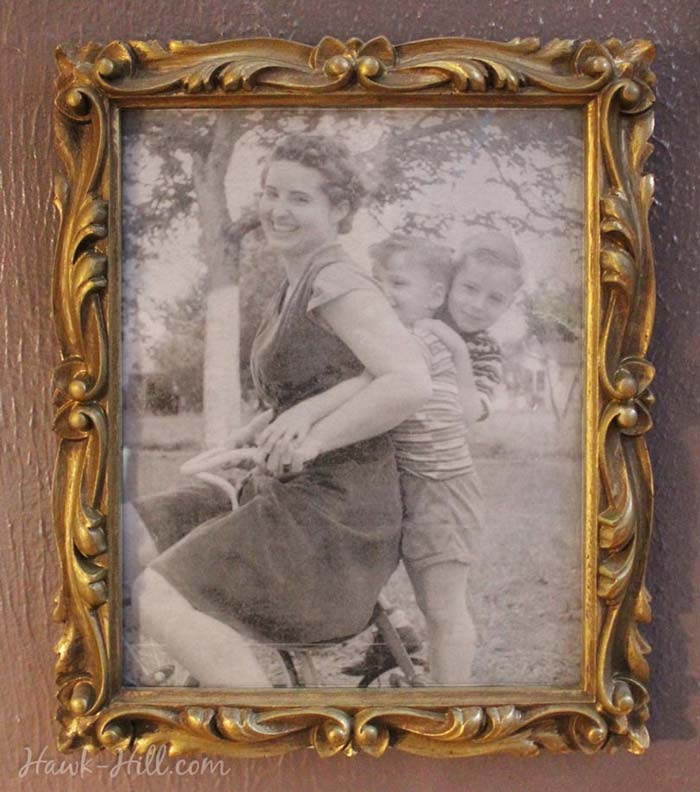
Desire to learn more than about using this technique on objects other than frames? I employ this technique, modified slightly, to preserve and nowadays vintage metal objects like former equus caballus shoes. Click the paradigm beneath to visit my tutorial on gilding & antiquing old horse shoes:
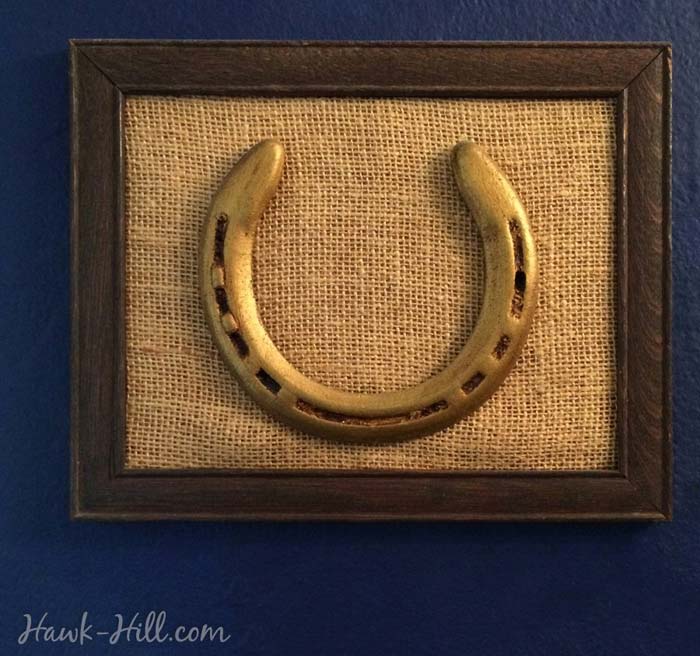
How To Repair A Frame With Gold Leaf,
Source: https://www.hawk-hill.com/diy-antique-gold-patina/
Posted by: murphykneliking.blogspot.com


0 Response to "How To Repair A Frame With Gold Leaf"
Post a Comment